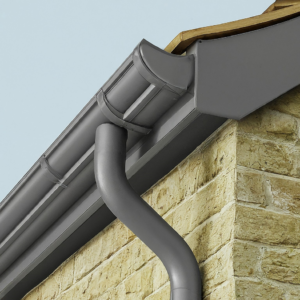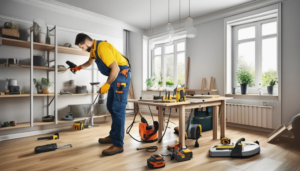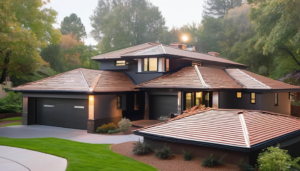
In recent years, the realm of residential remodeling has undergone a significant transformation. With advancements in technology, innovative materials, and changing consumer preferences, the future of home remodeling promises to be more exciting and efficient than ever. This article explores the latest trends and technologies shaping the future of residential remodeling, offering a glimpse into what homeowners can expect in the coming years.
Smart Homes: The Future is now
Integration of IoT Devices
The Internet of Things (IoT) has revolutionized how we interact with our living spaces. Future residential remodeling projects will heavily feature smart home devices, seamlessly integrating everything from lighting and heating to security systems. Homeowners can expect more advanced versions of current smart home hubs, capable of managing all connected devices through a single interface.
Enhanced Security Systems
Security remains a top priority for homeowners. The future will see the implementation of AI-driven security systems that offer real-time monitoring, facial recognition, and predictive analytics to prevent security breaches. These systems will not only alert homeowners of potential threats but also take proactive measures to mitigate risks.

Energy Efficiency and Sustainability
Solar Panels and Renewable Energy
As the world moves towards sustainability, residential remodeling will focus heavily on energy efficiency. Solar panels and other renewable energy sources will become standard features in homes. Advancements in solar technology, such as more efficient photovoltaic cells and energy storage solutions, will make renewable energy more accessible and cost-effective for homeowners.
Green Building Materials
The future of residential remodeling will prioritize eco-friendly materials. Innovations in sustainable building materials, such as recycled steel, bamboo, and reclaimed wood, will reduce the environmental impact of home renovations. These materials not only offer durability but also contribute to healthier living environments by minimizing the use of harmful chemicals.
Home Automation and Artificial Intelligence
AI-Powered Home Assistants
Artificial intelligence will play a crucial role in future residential remodeling. AI-powered home assistants will go beyond voice commands to offer personalized experiences, learning homeowners’ preferences and routines to anticipate their needs. From adjusting room temperatures to suggesting meal plans, these assistants will become integral parts of everyday life.
Smart Appliances
The integration of AI in home appliances will enhance their functionality and efficiency. Future kitchens will feature smart refrigerators that monitor food inventory and suggest recipes based on available ingredients. Washing machines and dishwashers will optimize water and energy usage, contributing to sustainable living practices.
Interesting Article: 12 Modern Bathroom Ideas That Elevate Your Space to a Luxe Oasis
Health and Wellness in Home Design
Indoor Air Quality
As awareness of indoor air quality increases, future residential remodeling projects will focus on creating healthier living environments. Advanced air purification systems, coupled with smart sensors, will monitor and improve air quality in real-time. These systems will filter out pollutants, allergens, and even viruses, ensuring a healthier indoor atmosphere.
Wellness Rooms and Spaces
The concept of wellness rooms is gaining traction in modern home design. Future homes will feature dedicated spaces for relaxation, meditation, and fitness. These wellness rooms will be equipped with smart lighting, temperature control, and sound systems to create a serene environment conducive to mental and physical well-being.

Flexible and Multi-Functional Spaces
Adaptable Furniture and Layouts
With the rise of remote work and changing family dynamics, homes need to be more flexible than ever. Future residential remodeling will incorporate adaptable furniture and layouts that can easily transform to meet different needs. For example, a living room can convert into a home office or a guest bedroom with the use of modular furniture.
Open Floor Plans
Open floor plans will continue to dominate home design trends. Removing unnecessary walls to create larger, more connected spaces enhances natural light flow and promotes a sense of openness. Future remodeling projects will emphasize creating versatile spaces that can adapt to various functions and activities.
The Role of Technology in Design and Construction
Virtual Reality and Augmented Reality
Virtual reality (VR) and augmented reality (AR) are revolutionizing the design and construction process. Homeowners can now take virtual tours of their remodeled spaces before construction begins, allowing for better visualization and decision-making. These technologies will become more sophisticated, offering immersive experiences that accurately depict the final results.
3D Printing in Construction
3D printing technology is poised to transform the construction industry. Future residential remodeling projects will leverage 3D printing to create customized building components, reducing waste and construction time. From intricate architectural details to entire walls, 3D printing will offer unprecedented design flexibility.
Advanced Building Technologies
Prefabrication and Modular Construction
Prefabrication and modular construction are set to become mainstream in residential remodeling. These methods involve manufacturing building components off-site and assembling them on-site, significantly reducing construction time and costs. Modular construction also allows for greater precision and quality control, resulting in more durable and efficient homes.
Smart Building Materials
The development of smart building materials will enhance the functionality and longevity of homes. Materials such as self-healing concrete, which can repair its own cracks, and thermochromic windows that adjust their tint based on temperature, will become standard in future remodeling projects. These materials contribute to lower maintenance costs and increased energy efficiency.

Personalization and Customization
Tailored Home Designs
Personalization will be a key trend in future residential remodeling. Homeowners will have access to advanced design tools and technologies that allow them to create spaces tailored to their unique preferences and lifestyles. From customizable furniture to bespoke architectural details, the future will offer endless possibilities for personalized home designs.
Smart Home Customization
The ability to customize smart home systems will enhance the homeowner experience. Future smart home platforms will offer greater flexibility, allowing users to create personalized routines and settings. For example, lighting, heating, and entertainment systems can be programmed to create the perfect ambiance for different times of the day or specific activities.
Sustainability and Eco-Friendly Innovations
Water Conservation Technologies
Water conservation will be a significant focus in future residential remodeling. Innovations such as greywater recycling systems, which reuse water from sinks and showers for irrigation, will become commonplace. Smart irrigation systems that monitor soil moisture and weather conditions to optimize water usage will also contribute to more sustainable living practices.
Zero-Waste Home Remodeling
The concept of zero-waste remodeling aims to minimize waste generated during the renovation process. Future projects will prioritize the use of recyclable materials and sustainable construction practices. Homeowners will also have access to services that repurpose old building materials, reducing the environmental impact of their remodeling projects.
The Future of Home Entertainment
Immersive Entertainment Systems
Future residential remodeling will cater to the growing demand for immersive home entertainment experiences. Advanced audio-visual systems, including 8K televisions and surround sound, will transform living rooms into home theaters. Augmented reality gaming systems will offer interactive entertainment experiences, blurring the lines between the physical and digital worlds.
Home Automation for Entertainment
Smart home automation will enhance the entertainment experience by integrating various devices and systems. Homeowners can expect seamless control of their entertainment systems through voice commands or mobile apps. This integration will extend to lighting, sound, and even furniture, creating an optimal environment for relaxation and enjoyment.
The Importance of Connectivity
High-Speed Internet and Connectivity
As technology becomes more integral to daily life, high-speed internet and reliable connectivity will be essential. Future residential remodeling projects will include robust networking infrastructure to support multiple connected devices. Homeowners can expect faster internet speeds and improved connectivity throughout their homes.
Smart Home Integration
The integration of smart home devices will be seamless in future remodeling projects. Home automation systems will be designed to work together harmoniously, offering a unified and intuitive user experience. This integration will extend to various aspects of home life, from security and lighting to entertainment and energy management.
The Future of Home Office Spaces
Ergonomic and Functional Design
The rise of remote work has highlighted the importance of well-designed home office spaces. Future residential remodeling will focus on creating ergonomic and functional home offices that promote productivity and comfort. Adjustable desks, ergonomic chairs, and adequate lighting will be key features of these spaces.
Technology Integration
Home office spaces will feature advanced technology integration to support remote work. High-speed internet, video conferencing systems, and smart office equipment will become standard in future home offices. These spaces will be designed to accommodate the latest technology, ensuring a seamless work-from-home experience.
Innovations in Home Insulation and Climate Control
Advanced Insulation Materials
Future residential remodeling will incorporate advanced insulation materials that offer superior thermal performance. These materials will help maintain comfortable indoor temperatures, reducing the need for heating and cooling systems. Insulation innovations such as aerogels and vacuum-insulated panels will become more prevalent, enhancing energy efficiency.
Smart Climate Control Systems
Smart climate control systems will provide precise temperature management, optimizing energy usage and comfort. These systems will learn homeowners’ preferences and adjust settings accordingly, ensuring ideal indoor conditions at all times. Integration with other smart home devices will enable holistic climate control, further enhancing energy efficiency.
Conclusion: The Future is Bright
The future of residential remodeling promises exciting advancements that will transform how we live in and interact with our homes. From smart home technology and sustainable building materials to personalized design and immersive entertainment systems, the possibilities are endless. As these innovations become more accessible, homeowners can look forward to living in spaces that are not only more functional and efficient but also more comfortable and enjoyable.
Residential remodeling is entering a new era, driven by technological advancements and changing consumer needs. The homes of the future will be smarter, more sustainable, and tailored to individual lifestyles, offering a glimpse into a more connected and efficient way of living. As these trends continue to evolve, the future of residential remodeling looks brighter than ever, promising to enhance our quality of life in ways we can only imagine today.



